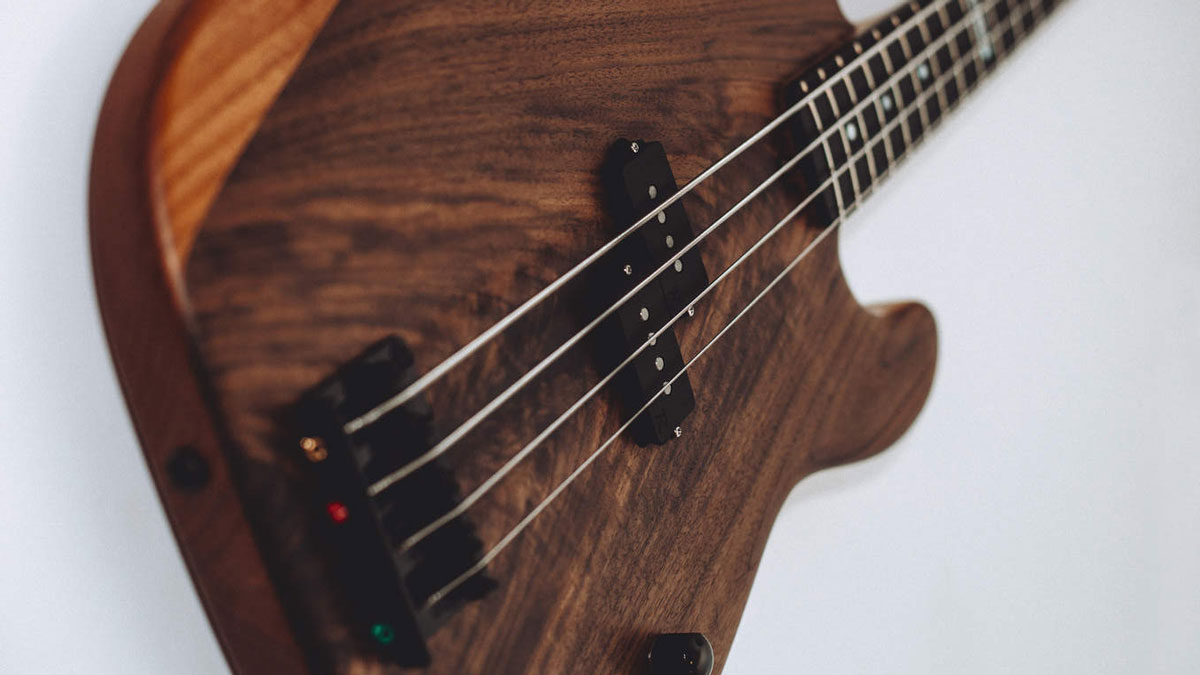MusicRadar Verdict
An impressively built Precision with everything you would expect of a custom bass.
Pros
- +
Build quality.
- +
Neck performance.
Cons
- -
The volume control offers limited functionality.
MusicRadar's got your back
We’ve been suitably impressed with Rikkers lately; its basses made it into our Gear Of The Year rundown in 2016 and 2017.
Needless to say, we’ve seen many split-coil Precision variants over the years, but this particular specimen is a custom order and looks rather tasty. Does this modern upgrade on the classic P-Bass design deliver the goods, or should our Dutch friends stick with its more avant-garde designs?
Build
It never fails to surprise us how P-Bass instruments can differ so dramatically when, at its core, the Precision is such a simple design. The sum of their parts can result in instruments that differ completely in terms of feel, balance, playability and tone.
Although this is a custom build rather than a standard production model, it’s a fair indication of the sort of split-coil equipped bass that Rikkers produces as part of the Classic Line range. The body shape is instantly familiar, and from the off it feels like a well-addressed bass to which a lot of time has been devoted.
With contouring front and back, comfort for the player is a major consideration, while the cutaways offer decent access to the upper frets of the 20-fret neck. The walnut-topped red alder body core gives the bass a naturally organic vibe, with the upper contour revealing the alder core timber.

The instrument has a satin finish which benefits the neck in particular, giving it a sleek, played-in feel. The overall setup is player-friendly, although there were several sharp fret ends. Still, these may be the result of an extremely air-conditioned environment. With a 41mm nut width, 18.5mm string spacing at the bridge and a shallow D-shaped neck profile, playability is high on the agenda. The neck feels quite rigid and inspiringly solid, with a tight neck-to-body connection. The neck joint itself is also noticeably contoured. There is some headstock bias, but the bass sits well against the player once on a strap.
Custom features include an engraved moniker on the headstock and a block nameplate at the twelfth fret. The Gotoh hardware is solidly attached and complemented by a recessed jack socket and bone nut. With just two controls - volume and tone - an air of simplicity is maintained throughout.
Want all the hottest music and gear news, reviews, deals, features and more, direct to your inbox? Sign up here.
Sounds And Playability
This bass has great sustain, with a focused, dark-sounding tone and a firm resonance; holding it against you while you play it makes these characteristics clear.
Plugging in, we’re met with a bass that sounds woody but smooth; it lacks the familiar P-Bass clank, but there’s a rounded smoothness in its place. The guttural low-mid presence is clearly evident, and can be enhanced by opening up the tone control. Surprisingly, the volume control didn’t show the gradual increase and decrease in level that we had hoped for, but the tone control is the opposite, with a lot of variation at both ends of the spectrum. The bass has an impressive amount of bounce in its tone, which works well with the smooth timbre afforded by its walnut body.
If you prefer a biting Precision tone, opening the tone control fully and playing with a pick will provide you with that sound; meanwhile, fingerstyle tones and string volumes are impressively even across the whole neck. The note-to-note definition is also spot on, while the slap tone is defined and throaty. Overall, this is one responsive instrument.
What this bass does, it does very well; it should provide the player with years of enjoyable playing and buckets of bass goodness. The woody tones stand out very well, the handwound pickup does its job admirably, and although this bass isn’t cheap, there’s a good level of finishing and the attention to detail is apparent.
Some players might regard a bass like this as having a limited tonal palette, but it’s still an excellent example of its type, delivering on all the requirements of the customer. From the start of the design process right through to the execution, Rikkers has every right to be pleased with the instrument they have produced here.
